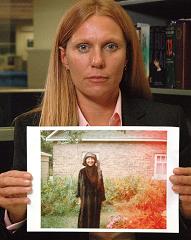Documentary: both sides of the camera
 For better or worse, documentary filmmaking has been plagued by the shadow of subjectivity since the first images were committed to celluloid. Trent Griffiths asks, does it even matter? Is subjectivity inevitable? Should the subjectivity of the lens be embraced? Is objectivity the (unattainable) ideal documentary should strive for?
For better or worse, documentary filmmaking has been plagued by the shadow of subjectivity since the first images were committed to celluloid. Trent Griffiths asks, does it even matter? Is subjectivity inevitable? Should the subjectivity of the lens be embraced? Is objectivity the (unattainable) ideal documentary should strive for?
While most of those questions are wide open for debate, the latter seems to have a clear answer.
Understanding the context in which films are made and the way audiences read them does matter.
Documentaries are powerful cultural artefacts – they inspire, infuriate, motivate and bend opinion. So having the right framework to understand a filmmaker’s point of view and the rules they lay out is essential to informed and healthy criticism.

